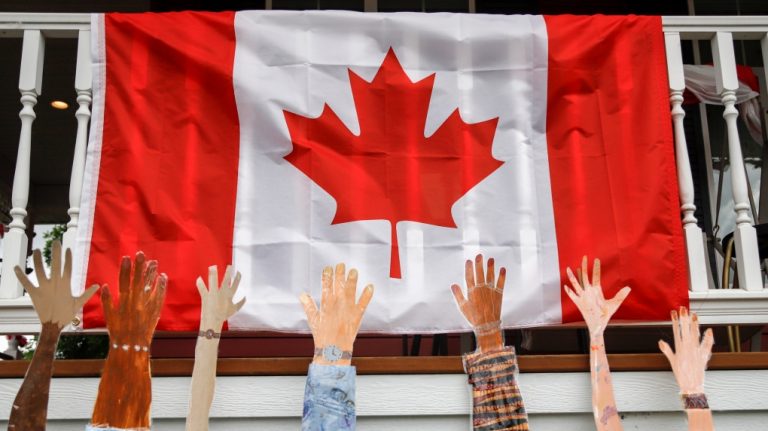As of May 2021, the Multiple Listing Service report indicated that the average housing price in Toronto is $1.32 million for a 1383 ft2 home. This is up by 38.73 per cent from 2020. Buying a property is becoming increasingly difficult as prices sky rocket and people are left with no choice but to rent, which is not always affordable either. As housing prices continue to increase, it will be impossible for younger generations to keep up if mortgages are becoming more difficult to get for first time home buyers, money laundering isn’t controlled, and the government doesn’t intervene.
Currently, the average entry level salary for someone that has just completed a post secondary education in Ontario is $42 910. In order to purchase a home in Toronto, the home buyer has to put down a 20 percent down payment. According to the average housing price in Toronto, this figure would be approximately $264 000. Considering the average annual entry level pay in Ontario, it would take years for someone to just afford a down payment. This is not taking into account the other expenses such as the price of food, rent, taxes, etc.
The average price to rent a one bedroom apartment in Toronto is $1816. This would mean that a majority of someone’s pay is going towards their rent. At this current rate, it is nearly impossible for someone to accumulate savings just to put a down payment on a home. If prices continue to rise at this rate, no one that is earning an entry level salary or minimum wage will be able to afford rent unless they have a roommate. Housing is a necessity and the federal and provincial governments need to do something about the insane prices.
There are new mortgage stress test rules from the Office of the Superintendent of Financial Institutions which are going to make it harder for first time home buyers to purchase a home. The new rules that come into effect as of June 1, 2021 will raise the qualifying rates, which can determine whether a borrower can handle payments if rates were to increase. The buyer has to show that they can afford the interest rate at two percentage points higher than what the bank is offering them, or the five year benchmark rate published by the bank of Canada, whichever is higher.
This change in rules would make it especially difficult for first time home buyers to qualify for a mortgage in the short term. The new rules are also going to inherently favour someone that has owned a home over someone that hasn’t since they have more equity.
One of Toronto’s largest contributors to the housing bubble is money laundering. The Ontario Real Estate Association stated that “money laundering is a multibillion-dollar problem in Ontario’s housing market”. Average workers of Toronto should not have to compete with dirty money just to be able to find a place that they can live in. Many launderers are able to out bid people when it comes down to a bidding war since they have so much disposable cash. People are often left feeling hopeless as the possibility of owning a home is becoming increasingly difficult.
It is unfair that someone who is pursuing a legitimate career has to compete with bids that are artificially inflated by money laundering. It is important that this is taken care of because if it isn’t, then people will be stretched beyond their means, when this problem may be avoided.
The worst part of it all is that there are an estimated 9000 to 27 000 vacant homes in Toronto, according to a report from Toronto’s executive committee. The reason for this is because properties are used as a place to launder their money rather than a place to live.
There is already a supply shortage of homes in Toronto as the population increases, and these vacant homes can go to people that really need them; not to criminals. Although the government has imposed a vacant home tax, this still hasn’t stopped people from money laundering. Canada has become a hotspot for money launderers, and this problem cannot be taken lightly or ignored.
The federal government needs to stop disregarding the housing bubble in Toronto. They need to cool down the market so that people have the chance to buy. The government has continued to neglect the issue of buying since they have only worried about the decrease in property value if the bubble were to burst.
Furthermore, Canada has some of the weakest money laundering laws compared to other liberal democracies such as Finland, France, Denmark and the U.S. We need stricter and more protective laws that ensure that foreign money launderers do not dump their money into houses, apartments, mansions and sometimes even whole floors of condominiums. It is unfair to the people that are hard workers and have dreamed of owning a property.
As a 16 year old living in Toronto, I am scared for what my future will look like. If things do not change, it will be nearly impossible for me, as well as other younger people to afford a home. If the government doesn’t prioritize bursting the housing bubble and cracking down on money launderers, then people will have no choice but to leave Toronto, a city that they love.
Sources
“Diane Francis: Canada’s Embarrassing Money Laundering Problem.” financialpost.com/diane-francis/diane-francis-canadas-embarrassing-money-laundering-problem.
“Feds Propose Tax on Foreign-Owned Vacant Properties.” www.cp24.com/news/feds-propose-tax-on-foreign-owned-vacant-properties-1.5393763.
“Home to Your Next Home.” property.ca/
“New Mortgage Stress Test Rules Will Make It Harder for First-Time Homebuyers: Experts.” globalnews.ca/news/7885116/mortgage-stress-test-changes-2021/.
Rentals.ca rentals.ca/national-rent-report.
“Toronto Real Estate Is Prone to Money Laundering (& Here’s Why).” precondo.ca/toronto-real-estate-money-laundering/.



